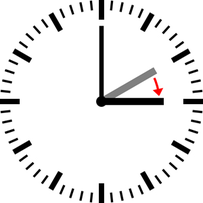 Did you know that historically myocardial events happen most often on mondays? Sandhu et al. have now looked at what actually happens when time is changed to daylight savings time (DST, or summer time). The researchers looked at a total of 42'060 patients admitted with heart attacks requiring percutaneous coronary intervention (PCI) during the period of January 1st 2010 until September 15th 2013. All patients were admitted to hospitals in the state of Michigan in the U.S. The results they found were surprising. On the monday after changing to DST (summer time) there was an increase of 24% in daily acute myocardial infarction (AMI) counts! The total number of AMI's during the following week though remained the same. Interestingly now when changing back to standard time (winter time) the following tuesday showed a 21% drop in AMI, that's when we get our hour back. Their conclusion was: In the week following the seasonal time change, DST impacts the timing of presentations for AMI but does not influence the overall incidence of this disease. Did you know that all this time changing was widely introduced during the first world war in order to save energy. The impact on saving energy nowadays is highly debatable, but more and more evidence arises that the impact on humans (and animals) is more pronounced than expected. Another reason to stop this silly habit once and forever! Open Heart 2014;1: doi:10.1136/openhrt-2013-000019 Comments are closed.
|
Search
|


 RSS Feed
RSS Feed


